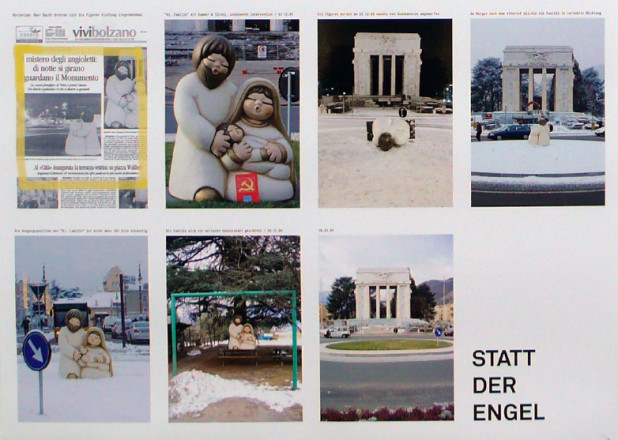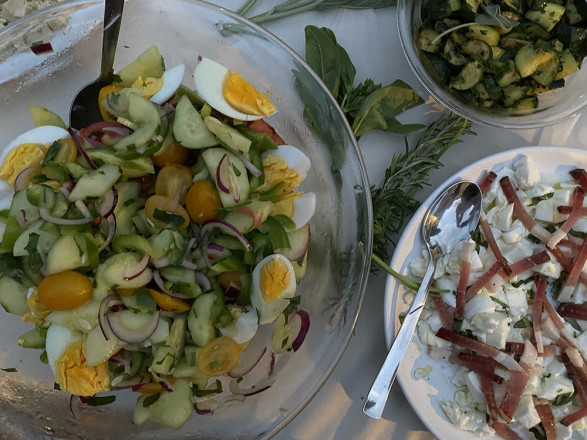Utopia Europa
With: “What crisis? What fears? What borders?” – we are trying a new examination of words that are currently omnipresent and that seem to shape our present as if they are forces of nature. We intent to hold them in front of us and ask: Are these really the right words? What other words could help? What words do I recommend for the present time and the way we are handling it?
Words determine our view of the present time – and also how we react to it. By being aware of a crisis? By being afraid? By registering borders?
South Tyrol
Lungomare
Literatur Lana
Neues Institut für Dramatisches Schreiben
If in days and times like this, circumstances take over and developments rapidly change, to such an extent that they cannot be fully grasped, it becomes hard to speak. It is also tough, when sadness and fear don’t leave day to day life and come to rule our world. And it indeed gets even more difficult, when opinions trigger speedy debates and discussions, as if they would get paid for them.
Still, conversing can maybe be possible, as soon as it’s on the lookout for an open dialogue that creates questions out of the very process of thinking and anchors them within society itself. It is maybe in a type of ‘cultural acting’, which investigates the world and its political dimensions, where the urgency of speaking lies? And maybe in it also lies an act of public responsibility?
The project “Utopia Europe”, an initiative by Literatur Lana, Lungomare and NIDS, developed as a reflective contribution to the questions and regulations that arise through the process of migration within Europe. The project did not want to impose a demand for reprehension, instruction nor conversion. It rather wanted to formulate and tackle the insecurities and experiences of a continent in profound change. Without promising a solution, it had a civil society of mutual respect and humanity in mind, through the prospect of an open ‘becoming’.
We heavily rely on the concept of ‘utopia’, which has represented a framework of thought in European history as well as cultural history from Antiquity onwards. If ‘utopia’ on one hand is the ‘topos’ of a non-contextualized localization, it is thus a constant possibility of ‘being-different’ and ‘seeing-different’; on the other hand, if a ‘utopia’ drafts the vision of a better society and therefore has the formulation of the future in its spotlight, that is when utopias proclaim, in one way or the other, a ‘goodbye’ of existing orders. But what happens when utopias get disbanded, as what seems to be happening at the moment to the idea Europe. What is the alternative draft? To whom and to which world views do we hand the idea of a better society? Maybe there is a chance to play one’s way through these or similar questions. If experimented with, by the means of conversation and narration, they just might be able to present us with conceivable and liveable options to our complex present.
A poster campaign has followed the topic ‘utopia’, where each of the three institutions pursued the topic through different actions and events. The posters tackled the terms which are key to our presence and the terms started to blur under the weight of their meaning.
At certain times, these words have the ability of naming an experience, and sometimes they move away from ’the experienced’ in a way that they belong to and lose the capacity of dealing with it at the same time. At other times, the words are followed by a particular type of thinking, which infiltrates into the present and appears, all of a sudden, as a narrative. What is it that terms and notions do with us and the society we live in? And what are they telling us, when they come to speak in a multiplicity of voices and languages?
What´s on
EXHIBITION :: Binta Diaw :: Collective Practices – A Living Experience of Feeling ListenedAbout Lungomare
Lungomare, a cultural association founded in Bolzano in 2003, was created from the desire and necessity to open a space in which to share differences, experiences, opinions and desires, a space in which to make the link between cultural production and the political and social dimension. Lungomare undertakes projects that investigate and test possible relationships between design, architecture, urban planning, art and theory, the results of which are presented in different formats: public discussions, conferences, publications, exhibitions and interventions in public spaces. All these formats are characterised by the intention to interact with cultural and socio-political processes relating to the region in which Lungomare is located.
Currently Lungomare’s activities focus on long-term residency projects, a format whereby Lungomare invites guests to engage and interact within the context of South Tyrol. Lungomare’s activities are based on three principles: specific attention to the context in which the association’s projects are undertaken, the transdisciplinary approach that distinguishes these projects, and reflection on the role of Lungomare as a cultural institution in connection with the region in which it operates.
Territory
Lungomare is located at the edge of Bolzano, the capital of South Tyrol, and relates to the context in which it operates, attempting to highlight the dynamics of change. Large urbanized areas alternate with broad areas of intensive cultivation and yet others of picturesque landscape, all of which penetrate the centre of the city. The city is surrounded by mountains and this is one of the reasons why the tourism industry has become a driving force in this locality. The demographic structure of the city has been characterized for a long time by the coexistence of two populations, those speaking German and those speaking Italian. However, the social and demographic composition of Alto Adige Südtirol is changing. Migrants, including those from non-European countries are making their way to the area to settle, whilst others, including political refugees, are flowing through the region.



